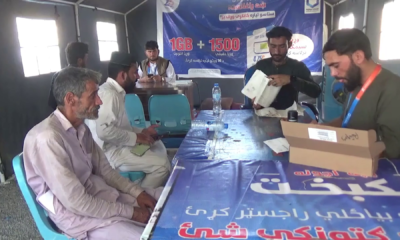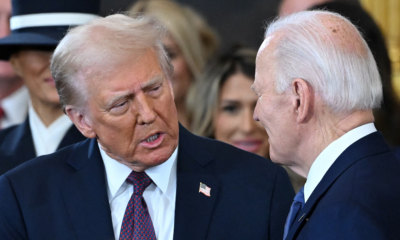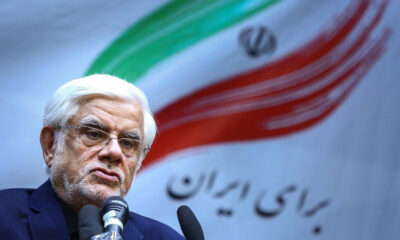Regional
Russia seeks to serve as mediator between US and Iran
A source briefed on the discussions, speaking on condition of anonymity, told Reuters that Russia had offered to act as an intermediary, but Moscow was not asked to serve in such a role.
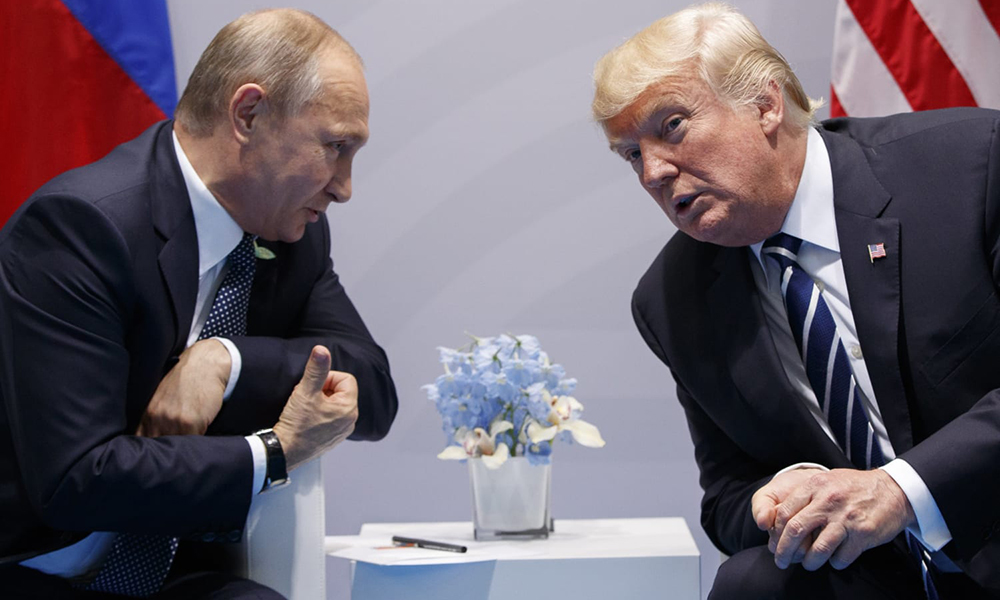
Russia has offered to mediate between the United States and Iran, a source briefed on discussions told Reuters on Tuesday, as the Kremlin vowed to do everything possible to facilitate a peaceful solution to tensions over Tehran’s nuclear program, Reuters reported.
Russia’s state-run Zvezda media outlet reported earlier on Tuesday, citing Kremlin spokesman Dmitry Peskov, that President Vladimir Putin had agreed to mediate between Tehran and Washington in talks over nuclear weapons.
A source briefed on the discussions, speaking on condition of anonymity, told Reuters that Russia had offered to act as an intermediary, but Moscow was not asked to serve in such a role.
Iran’s mission to the United Nations in New York declined to comment.
The development comes after U.S. President Donald Trump upended U.S. policy after taking office in January, taking a more conciliatory stance towards Russia that has left Western allies wary as he tries to broker an end to Moscow’s three-year war in Ukraine.
Peskov told reporters on Tuesday that Iran was Russia’s partner and ally and Moscow would continue to develop relations.
“President Putin believes and is convinced that the problem of Iran’s nuclear dossier should be solved solely by peaceful means,” he said. “Of course, Russia, being an Iranian ally, will be doing all what is possible to facilitate the peaceful solution to the problem.”
Trump last month restored his “maximum pressure” campaign on Iran in a bid to stop Tehran from building a nuclear weapon. But he also said he was open to a deal and was willing to talk to Iran’s President Masoud Pezeshkian.
“The Trump administration will talk to our adversaries and allies alike, but … from a position of strength to defend our national security,” Brian Hughes, spokesperson for the White House National Security Council, said on Tuesday.
Iran has denied wanting to develop a nuclear weapon. However, it is “dramatically” accelerating enrichment of uranium to up to 60% purity, close to the roughly 90% weapons-grade level, the U.N. nuclear watchdog has warned, read the report.
Western states say there is no need to enrich uranium to such a high level under any civilian program and that no other country has done so without producing nuclear bombs. Iran says its nuclear program is peaceful.
“The United States will not tolerate Iran obtaining a nuclear weapon or their support of terror in the Middle East and around the world,” Hughes said.
U.S. Secretary of State Marco Rubio spoke with Israeli Prime Minister Benjamin Netanyahu on Tuesday, conveying “that he anticipates close coordination in addressing the threats posed by Iran and pursuing opportunities for a stable region,” State Department spokesperson Tammy Bruce said.
Iran agreed a deal in 2015 with Britain, Germany, France, the U.S., Russia and China – known as the Joint Comprehensive Plan of Action (JCPOA) – that lifted sanctions on Tehran in return for restrictions on its nuclear program.
Washington quit the agreement in 2018 during Trump’s first term as president, and Iran began moving away from its nuclear-related commitments.
Britain, France and Germany have told the U.N. Security Council that they are ready – if needed – to trigger a so-called “snap back” of all international sanctions on Iran to prevent the country from acquiring a nuclear weapon, Reuters reported.
They will lose the ability to take such action on October 18 next year when the 2015 U.N. resolution on the deal expires. Trump has directed his U.N. envoy to work with allies to snapback international sanctions and restrictions on Iran.
Regional
Are B-2 bombers a message to Iran? ‘We’ll let them decide,’ Pentagon chief says
Trump on Wednesday repeated a threat to use military force if Iran did not agree to end its nuclear program.
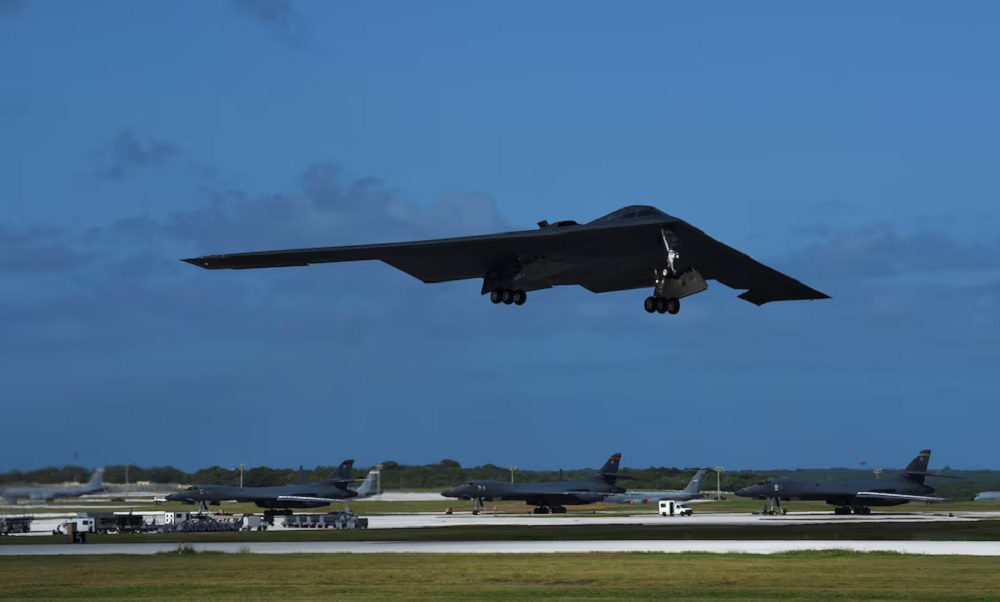
U.S. Defense Secretary Pete Hegseth said it was up to Iran to decide whether the recent U.S. movement of B-2 bombers was a message to Tehran, as he voiced hope that U.S.-Iran negotiations over Tehran’s nuclear program could be resolved peacefully.
As many as six B-2 bombers relocated in March to a U.S.-British military base on the Indian Ocean island of Diego Garcia, U.S. officials have told Reuters, amid a U.S. bombing campaign in Yemen and mounting tensions with Iran, Reuters reported.
There are only 20 B-2 bombers in the Air Force’s inventory so they are usually used sparingly.
Experts say that puts the B-2s, which have stealth technology and are equipped to carry the heaviest U.S. bombs and nuclear weapons, in an ideal position to operate in the Middle East.
Asked if the B-2s were meant to send a message to Iran, Hegseth said: “We’ll let them decide.”
“It’s a great asset … it sends a message to everybody,” he told reporters during a trip to Panama.
“President Trump’s been clear … Iran should not have a nuclear bomb,” he said. “We very much hope – the President is focused on doing that peacefully.”
Trump on Monday made a surprise announcement that the United States and Iran were poised to begin direct talks on Tehran’s nuclear program on Saturday, warning that Iran would be in “great danger” if the talks were unsuccessful.
Iran, which had pushed against Trump’s demands in recent weeks, said indirect talks would be held in Oman, underscoring the differences between the two countries.
Trump on Wednesday repeated a threat to use military force if Iran did not agree to end its nuclear program.
“I’m not asking for much … but they can’t have a nuclear weapon,” Trump told reporters. “If it requires military, we’re going to have military. Israel will, obviously, be … the leader of that. No one leads us. We do what we want.”
He declined to address when any military action could begin.
Although B-2 bombers have been employed to strike Houthi targets in Yemen in the past, most experts say use of the stealthy bomber is overkill there.
However, the B-2 is equipped to carry America’s the 30,000-pound GBU-57 Massive Ordnance Penetrator, designed to destroy targets deep underground. That is the weapon that experts say could be used to strike Iran’s nuclear program.
Western powers accuse Iran of having a clandestine agenda to develop nuclear weapons by enriching uranium to a high level of fissile purity, above what they say is justifiable for a civilian atomic energy program.
Tehran says its nuclear program is wholly for civilian energy purposes.
Regional
US energy secretary sees tighter sanctions on Iran without deal
Wright said he does not think European countries will want to return to Russia for their energy supplies when the war in Ukraine ends.
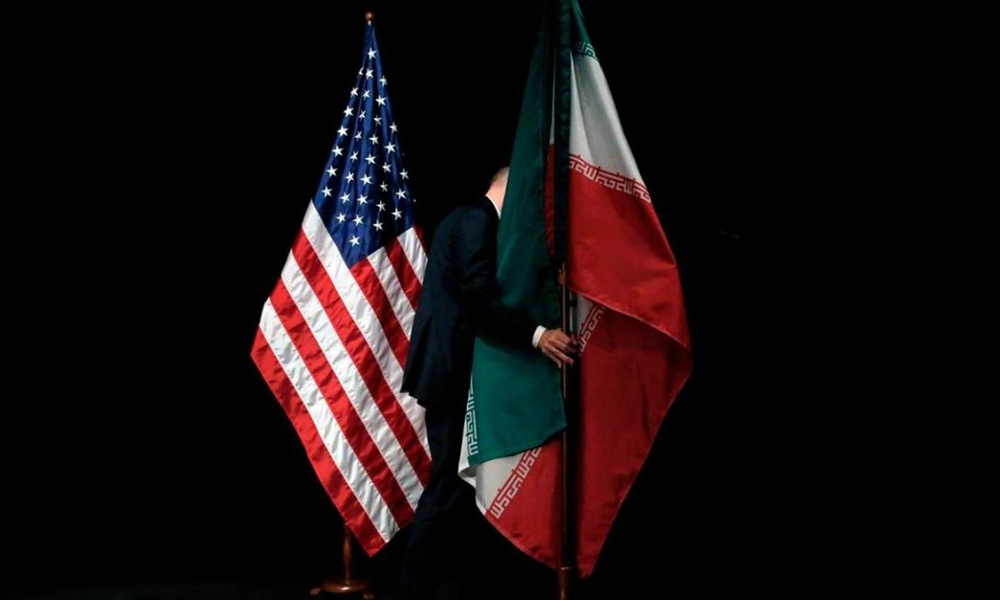
U.S. Energy Secretary Chris Wright said on Tuesday that Iran can expect tighter sanctions if it does not come to an agreement with President Donald Trump on its nuclear program, Reuters reported.
“So absolutely, I would expect very tight sanctions on Iran, and hopefully drive them to abandon their nuclear program,” Wright said in an interview with CNBC.
Wright on Wednesday will launch a nearly two-week tour of three Middle East countries, including Saudi Arabia, marking his first visit as a U.S. official to the de facto leader of the Organization of the Petroleum Exporting Countries, a source familiar with the matter told Reuters.
Wright also defended Trump’s executive order, expected later on Tuesday, to boost the coal industry as essential for artificial intelligence data centers, as well as steel production and other industrial activities.
“We need a growing supply of electricity to hit the AI boom and also for this re-industrializing of the United States. If we want to grow America’s electricity production meaningfully over the next five or 10 years, we’ve got to stop closing coal plants,” Wright said in the interview.
Asked about Trump’s comment that the European Union should buy more energy from the United States, Wright said he has had countries in Asia, in Europe and elsewhere reach out to express interest in buying more American energy.”
Wright said he does not think European countries will want to return to Russia for their energy supplies when the war in Ukraine ends.
“As I talk to European leaders, one thing they all share is a regret that they bet their energy future on Russia,” he said. “So I don’t think there’s a huge desire right now that, when the war is over, we’re going to we’re going to re-count on Russia for a dominant share of our energy supply. I think that’s very unlikely to unfold.”
Regional
US discusses tariffs, critical minerals, immigration with Pakistan
In the call with Dar, Rubio emphasized the importance of Pakistan’s cooperation with the U.S. on law enforcement and addressing illegal immigration, the State Department said.
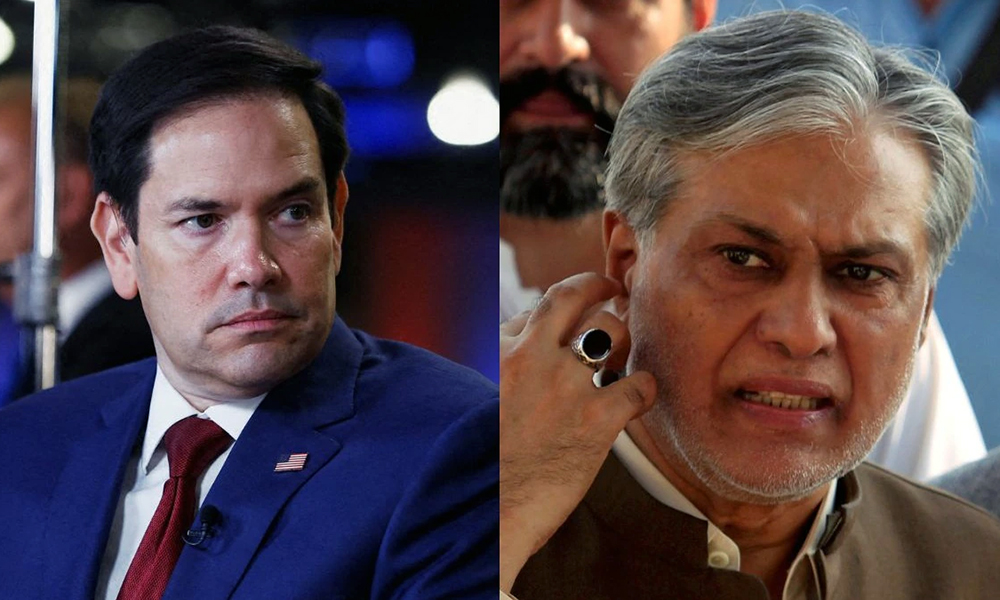
U.S. Secretary of State Marco Rubio spoke to Pakistani Foreign Minister Ishaq Dar on Monday about tariffs, trade relations, immigration and prospects for engagement on critical minerals, the State Department, and Pakistan’s foreign ministry, said in separate statements.
President Donald Trump said last week that he would impose a 10% baseline tariff on all imports to the U.S. and higher duties on dozens of other countries, including some of Washington’s biggest trading partners, rattling global markets and bewildering U.S. allies. The Trump administration imposed a 29% tariff on Pakistan, Reuters reported.
“They (Rubio and Dar) discussed U.S. reciprocal tariffs on Pakistan and how to make progress toward a fair and balanced trade relationship,” the State Department said.
The U.S. goods trade deficit with Pakistan was $3 billion in 2024, a 5.2 % increase over 2023, according to the Office of the U.S. Trade Representative.
“The Secretary raised prospects for engagement on critical minerals and expressed interest in expanding commercial opportunities for U.S. companies.”
Pakistan’s foreign ministry said Rubio “reciprocated the desire to collaborate with Pakistan in trade and investment in various sectors, especially critical minerals.”
The Trump administration has also used prospects of engagement over critical minerals with other countries.
For example, it is attempting to strike an agreement over critical minerals with Ukraine as part of talks related to the Russia-Ukraine war. Washington has also said it is open to exploring critical minerals partnerships with Congo and help end a conflict raging in the African country’s east.
In the call with Dar, Rubio emphasized the importance of Pakistan’s cooperation with the U.S. on law enforcement and addressing illegal immigration, the State Department said.
Last month, Pakistan highlighted its cooperation with Washington on countering extremism after the arrest of Mohammad Sharifullah, whom the U.S. blames for a 2021 attack on its troops at Kabul airport, in a military operation along the border with Afghanistan, read the report.
The Pakistan foreign ministry said Rubio and Dar discussed the situation in Afghanistan.
-
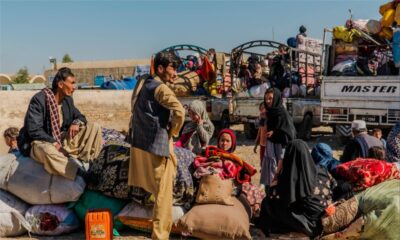
 Latest News4 days ago
Latest News4 days agoUN rights experts call on Pakistan to stop removal process of Afghan refugees
-

 Latest News5 days ago
Latest News5 days agoUS has no plans for reopening of its embassy in Kabul
-

 Science & Technology4 days ago
Science & Technology4 days agoMeta releases new AI model Llama 4
-
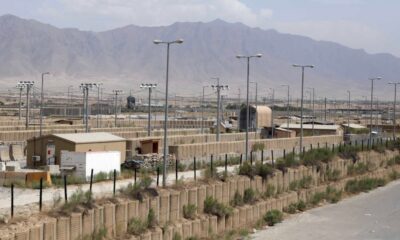
 Latest News3 days ago
Latest News3 days agoIEA rejects reports of US military planes landing at Afghanistan’s Bagram Air Base
-
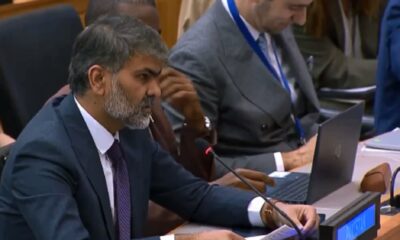
 Latest News5 days ago
Latest News5 days agoPakistan urges global community to block arms flow to militant groups in Afghanistan
-

 Sport4 days ago
Sport4 days agoAfghanistan Under-19s beat Nepal by 1 run in second ODI, win series
-

 World4 days ago
World4 days agoAnti-Trump protesters gather in Washington, other US cities
-
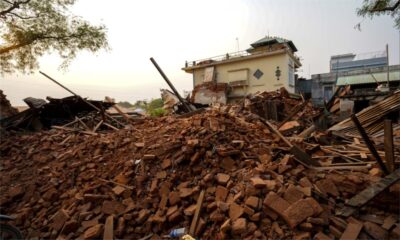
 Regional4 days ago
Regional4 days agoRains add to challenge for Myanmar quake relief, toll at 3,471






